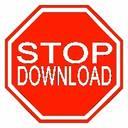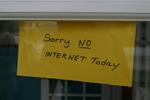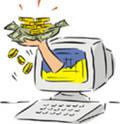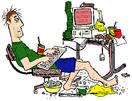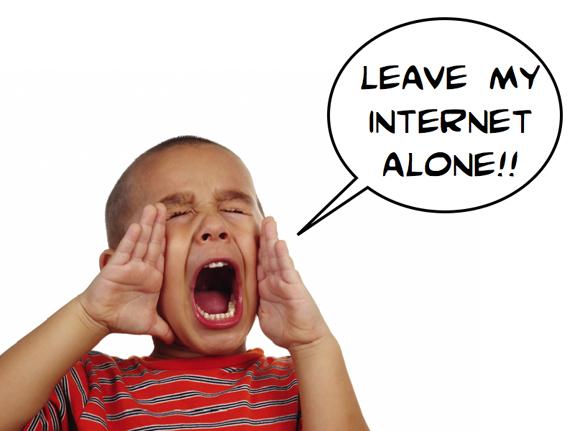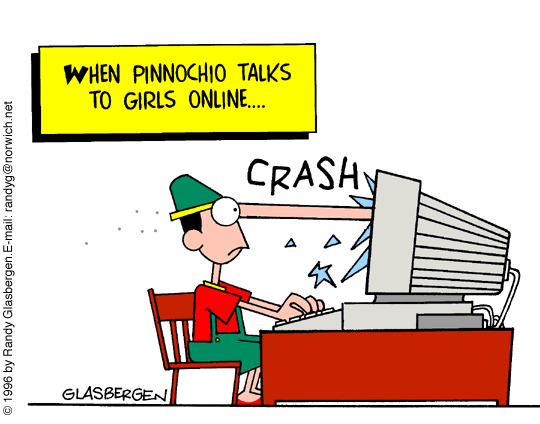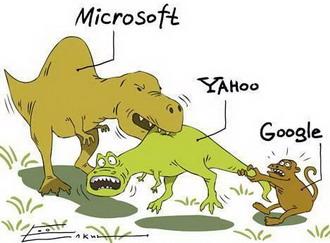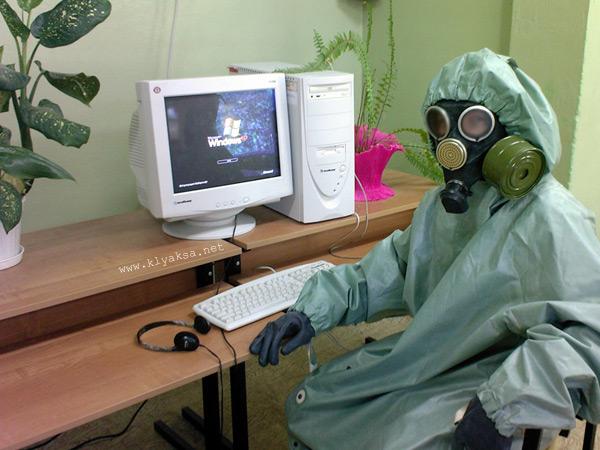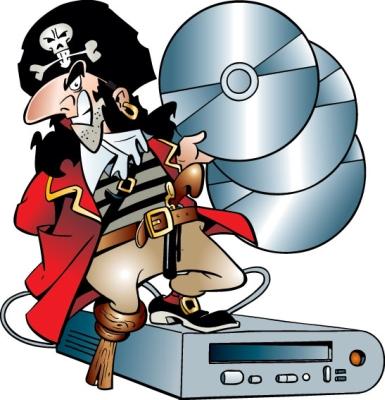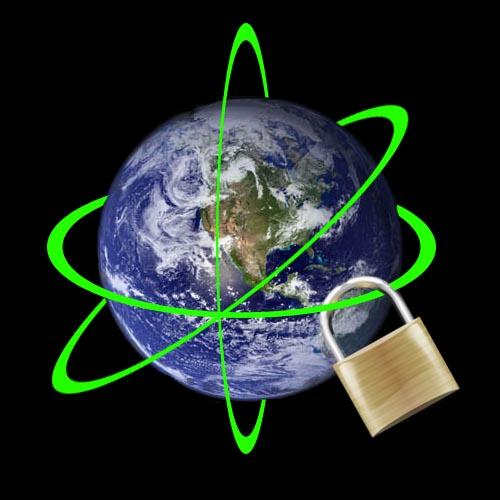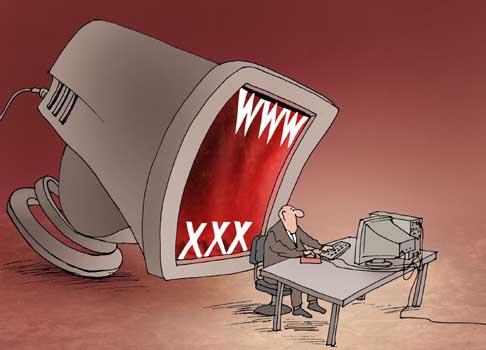
- •А.Д. Музафарова а.Г. Ковалева
- •Vocabulary practice section 1
- •Vocabulary practice section 2
- •Vocabulary practice section 3
- •This week: software
- •Vocabulary practice section 1
- •Vocabulary practice section 2
- •Internet: Voice recognition takes off
- •Programming languages.
- •Vocabulary practice section 1
- •Vocabulary practice section 2
- •Int — international organization
- •Vocabulary practice section 3
- •The 15 enemies of the Internet
- •Internet crime
- •Vocabulary practice section 1
- •Vocabulary practice section 2
- •Vocabulary practice section 3
- •How a virus infects a program
- •Vocabulary practice section 1
- •Video Games
- •Vocabulary practice section 2
- •Vocabulary practice setion 3
- •Vocabulary practice setion 4
- •Twitter's transmitters
- •Vocabulary practice section 1
- •Good Web Design? What Is It?
- •Vocabulary practice section 2
- •Vocabulary practice section 3
- •Top Five Ways to Make Your Site More Popular
- •1. Strong Hosting
- •2. Optimize Your Website
- •3. Take Advantage of Social Media Optimization
- •4. Get Your Visitors Involved
- •5. Emphasize Usability in Your Design
- •You’ve been in graphics too long if…
- •Internet
- •Web design
The 15 enemies of the Internet
The 15 “enemies” are the countries that crack down hardest on the Internet, censoring independent news sites and opposition publications, monitoring the Web to stifle dissident voices, and harassing, intimidating and sometimes imprisoning Internet users and bloggers who deviate from the regime’s official line.
(in alphabetical order)
Belarus The regime uses its monopoly of the communications system to block access to opposition websites when it chooses, especially at election time. President Alexander Lukashenko dislikes criticism, as shown by the harassment in August 2005 of youngsters who were posting satirical cartoons online.
Burma
|
|
This country is among the very worst enemies of Internet freedom and in many ways its policies are worse than China’s. The price of computers and a home Internet connection is prohibitive so Internet cafés are the target of the military regime’s scrutiny. As in neighbouring Vietnam and China, access to opposition sites is systematically blocked, in this case with technology supplied by the US firm Fortinet. Burma’s censorship is special - Web-based e-mail, such as Yahoo |
or Hotmail, cannot be used and all Internet café computers record every five minutes the screen being consulted, to spy on what customers are doing.
China China was one the first repressive countries to grasp the importance of the Internet and of controlling it. It is also one of the few countries that has managed to “sanitise” the Internet by blocking access to all criticism of the regime while at the same time expanding it (China has more than 130 million users). The secret of this success is a clever mix of filter technology, repression and diplomacy. Along with effective spying and censorship technology, the regime is also very good at intimidating users and forcing them to censor their own material. China is the world’s biggest prison for cyber-dissidents, with 62 in prison for what they posted online.
Cuba
|
|
President Fidel Castro’s regime has long been good at tapping phones and these days is just as skilled when it comes to the Internet. The Chinese model of expanding the Internet while keeping control of it is too costly, so the regime has simply put the Internet out of reach for virtually the entire population. |
Being online in Cuba is a rare privilege and requires special permission for the ruling Communist Party. When a user does manage to get connected, often illegally, it is only to a highly-censored version of the Internet.
Iran The information ministry boasts that it currently blocks access to hundreds of thousands of websites, especially those dealing in any way with sex but also those providing any kind of independent news. A score of bloggers were thrown in prison.
Libya With nearly a million people online (about a sixth of the population), Libya could be a model of Internet expansion in the Arab world. But it has no independent media, so the Internet is controlled, with access blocked to dissident exile sites by filters installed by the regime, which is also now targeting cyber-dissidents, with the arrest of former bookseller Abdel Razak al-Mansouri, who posted satirical articles on a London-based website. He was sentence to 18 months in prison for supposed “illegal possession of a gun.”
The Maldives
|
The archipelago is a paradise for tourists but a nightmare for cyber-dissidents. The regime cracks down harshly on freedom of expression. Several opposition websites are filtered and one of four people arrested in 2002 is still in prison for |
|
helping to produce an e-mailed newsletter.
A British company, Cable & Wireless, controls Internet access in the country.
Nepal King Gyanendra’s first reflex when he seized power in February 2005 was to cut off Internet access to the outside world. It has since been restored, but the regime continues to control it and most online opposition publications have been blocked inside the country. Bloggers discussing politics or human rights do so under constant pressure from the authorities.
North Korea The country is the most closed-off in the world and the government, which has total control of the media, refused until recently to be connected to the Internet. Only a few thousand privileged people have access to it and then only to a heavily-censored version, including about 30 sites praising the regime.
Saudi Arabia
|
|
The government agency in charge of “cleaning up” the Web, the Internet Service Unit (ISU), boasts that it currently bars access to nearly 400,000 sites with the aim of protecting citizens from content that is offensive or violates Islamic principles and social standards. |
The sites blocked deal mainly with sex, politics or religion (except those about Islam that are approved by the regime).
Syria The accession to power of President Bashar el-Assad in 2000 raised hopes of greater freedom of expression, but these were disappointed. The regime restricts Internet access to a minority of privileged people, filters the Web and very closely monitors online activity. A Kurdish journalism student is in prison for posting photos on a foreign-based site of a demonstration in Damascus. Another Internet user was freed in August 2005 after more than two years in prison for simply passing by e-mail on a foreign-produced newsletter. Both were tortured in prison.
Tunisia President Zine el-Abidine Ben Ali, whose family has a monopoly on Internet access inside the country, has installed a very effective system of censoring the Internet. All opposition publications are blocked, along with many other news sites. The regime also tries to discourage use of webmail because it is harder to spy on than standard mail programmes that use Outlook.
Turkmenistan
|
No independent media exists. As in Cuba and North Korea, the regime takes a radical attitude to the Internet and keeps virtually all citizens away from it, with home connections not allowed. |
|
There are no Internet cafés and the Web is only accessible through certain companies and international organisations. Even when connected, it is only to a censored version of the Internet.
Uzbekistan President Islam Karimov proclaimed the “era of the Internet” in his country in May 2001. Online facilities have expanded rapidly but so has censorship of them. The state security service frequently asks ISPs to temporarily block access to opposition sites. Since June 2005, some Internet cafés in the capital have displayed warnings that users will be fined 5,000 soms (4 euros) for looking at pornographic sites and 10,000 (8 euros) for consulting banned political sites.
Vietnam The country closely follows the Chinese method of controlling the Internet, but though more ideologically rigid, the regime does not have the money and technology China has to do this. It has Internet police who filter out “subversive” content and spy on cybercafés. Cyber-dissidents are thrown in prison and three have been in jail for more than three years for daring to speak out online in favour of democracy.
1. True or false?
|
|
1. 15 countries mentioned in the text are “enemies” of the Internet because usually attack different sites and crash bloggs and e-mails. 2. In most countries the regime uses its monopoly of the communications system to block access to the Internet. 3. In Belarus, China and North Korea governments dislike criticism so block |
access to opposition websites.
4. China is the world’s biggest prison for cyber-dissidents.
5. In Cuba to go online one must have a special permission.
6. An access to the Internet is limited in Iran, Saudi Arabia to protect citizens from content that is offensive or violates Islamic principles and social standards.
7. In Tunisia people have some prohibited sites but have great opportunities in e-mailing.
8. In Turkmenistan people can use the Internet only at home as there are no Internet cafés and the Web is accessible only through certain companies.
9. A lot of cyber-dissidents are thrown in prison in Iran, Libya, the Maldives, Syria and Vietnam.
10. Some countries follow the Chinese method of controlling the Internet.
2. There are not only” enemy-countries” but there are also “countries to watch”. The “countries to watch” do not have much in common with the "enemies of the Internet." The plight of a Chinese Internet user, who risks prison by mentioning human rights in an online forum, does not compare with the situation of a user in France or the United States. Yet many countries that have so far respected online freedom seem these days to want to control the Internet more. Their often laudable aims include fighting terrorism, paedophilia and Internet-based crime, but the measures sometimes threaten freedom of expression.
Go on http://www.rsf.org/The-15-enemies-of-the-Internet-and.html and find the information about these countries. Make a report.
SPEAKING/WRITING PRACTICE SECTION
|
|
1. E-mailers make use of symbols called smileys (or emoticons) which can be written using standard letters and signs.
|
|
:-) |
Your basic smiley. This is used to mean I'm happy. |
|
; -) |
Winking smiley. I'm flirting or being ironic. |
|
;-( |
Frowning smiley. I did not like something. |
|
8-) |
I wear glasses. |
|
:-{) |
I have a moustache. |
|
:-| |
I'm indifferent. |
|
:-~) |
I have a cold. |
|
C=:^) |
Head cook, chef-de-cuisine. |
|
Q:^) |
Soldier, man with beret, boy scout. |
|
*:O) |
Clown face; I'm feeling like a buffoon. |
|
:^9 |
Licking the lips; very tasty or delicious. |
|
^^^^^^O:>~ |
Snake (or to rake someone over the coals) |
Find some other smileys. Explain their meaning. What is your attitude to their usage? What do you think about the language the users use in e-mails? Write an e-mail using smileys. Try to make a message only by the means of smileys.
2. Choose any topic you like and make a report:
1. The history of the Internet.
2. The most interesting places you have explored on the Internet.
3. Next generation Internet.
4. The place of computer technology in our culture.
5. What is ICANN?
6. Internet growth in different countries/cultures.
7. All about spam.
8. The history and future of Internet chats.
9. Some services, which are available to the users of the Internet.
10. Netiquette.
FUN AND GAMES SECTION
1. Give ideas, how do these cartoons relate to the Internet and the World Wide Web?
|
|
|
|
|
2. Word association: missing links
Each of the sets of words below can be linked by one other word. What is the missing word? Give definitions to the words. What other collocations with these words do you know?
|
WORLD WIDE |
|
INDEXE |
|
DR |
|
PORTAL |
|
MASTER |
|
BROWSER |
3. Choose the best word. Check who will get more point quicker.
1. ADSL (asymmetric digital subscriber line) is moor commonly known as … .
|
a. longband |
b. broadband |
c. wideband |
2. Broadband internet connection is much faster than … .
|
a. dial-in |
b. dial-through |
c. dial-up |
3. Before you can connect to the Internet for the first time, you have to … an account with an ISP.
|
a. set |
b. set up |
c. set in |
|
|
4. Each time you want to connect to your ISP’s system, you have to enter a log-in name and a …
5. You can set your computer to … your log-in details, so you don’t have to type them in each time.
|
6. With a broadband connection, you usually have to pay a … .
|
a. fixed monthly price |
b. fixed monthly fee |
c. fixed monthly cost |
7. With dial-up, you can usually choose a … tariff.
|
a. pay-as-you-go |
b. pay-what-you-want |
c. pay-if –you-like |
8. Some broadband contracts limit the amount … you can have each month.
|
a. pages |
b. traffic |
c. use |
9. Looking at web pages can be called "navigating the Web" but is more commonly called … .
|
a. "surfing the net" |
b. "skiing the net" |
c. "swimming the net" |
10. You can often find the answer to a question by … on the Internet.
|
a. looking at it |
b. looking for it |
c. looking it up |
11. When your computer is not connected to the internet, it is … .
|
a. out of line |
b. offline |
c. off the line |
12. Internet banking is also called … .
|
a. online banking |
b. on the line banking |
c. inline banking |
13. An unexpected disconnection from the internet is called a … .
|
a. lost connection |
b. missed connection |
c. dropped connection |
14. A file which is copied from the internet onto your computer is called … .
|
a. an upload |
b. a download |
c. a load |
15. Downloading files from the internet can … your computer with a virus.
|
a. infect |
b. contaminate |
c. dirty |
16. "The website gets a thousand hits a week" means the website has a thousand … a week.
|
a. sales |
b. visits |
c. search engine matches |
17. The words, images and other material that make up a website are called … .
|
a. the contents |
b. the content |
c. the filling |
18. Designs and drawings in websites are usually called … .
|
a. web pictures |
b. web graphics |
c. web illustrations |
19. Moving pictures in websites are usually called … .
|
a. cartoons |
b. movies |
c. animations |
20. Websites with sounds and/or video clips and/or animations have … .
|
a. multimedia |
b. many-media |
c. mixed-media |
21. A space in a website where you enter information (address, password etc.) is called a … .
|
a. box |
b. strip |
c. field |
22. A hyperlink is often called just … .
|
a. a link |
b. a hyper |
c. an HL |
23. A place with computers for public internet use is usually called an internet cafe or … even if they don't serve coffee.
|
a. web cafe |
b. computer cafe |
c. cyber cafe |
24. Internet cafes offer internet … .
|
a. connection |
b. availability |
c. access |
25. A program that adds functions to a browser (e.g. Shockwave) is called a … .
|
a. plug |
b. plugged-in |
c. plug-in |
26. Temporary internet files are stored in the … .
|
a. cash |
b. cache |
c. cashe |
27. Colours which all browsers can display without problems are called … colours.
|
a. browser safe |
b. browser acceptable |
c. browser easy |
| |
|
|
4. Complete the sentences with the missing verbs, and write them into the crossword puzzle. Words in brackets mean the same as the missing verbs.
| |||
|
1. … your holiday photos on the web. (display) 2. … the attachment in a new window. 3. … pop-up. (stop) 4. … to the internet. 5. (across) … your wireless connection. (turn on) 5. (down) … your credit card details. (type in) 6. … your anti-virus protection. 7. … the photo as a JPEG. 8. … a technical problem. (sort out) 9. … on your firewall. (enable) |
10. … your wireless connection. 11. … your webpage to a web server. 12. … some clipart from the Internet. 13. … an attachment with an email. 14. … for something on eBay. 15. (across) … pop-ups. (permit) 15. (down) the Internet. (use) 16. … the email to everybody else on the team. (send a copy of) 17. … a bid for something on eBay. 18. … to a different ISP. (change) |
|
|
1 |
2 |
|
|
|
|
|
|
|
|
|
|
|
|
|
3 |
|
|
4 |
|
|
|
|
|
|
|
|
|
|
|
|
|
|
5 |
|
|
|
|
|
|
|
|
|
|
|
|
|
|
|
|
|
|
|
|
|
|
|
6 |
|
|
|
|
|
|
|
|
|
|
|
|
|
|
|
|
|
|
|
7 |
|
|
|
8 |
|
|
|
|
|
|
|
|
|
|
|
|
|
|
|
|
|
|
9 |
|
|
|
|
|
|
|
|
10 |
|
11 |
|
|
|
|
12 |
|
|
|
|
|
|
|
|
|
|
|
|
|
|
13 |
|
|
|
|
|
|
|
|
|
|
|
|
|
|
|
|
|
|
|
|
|
14 |
|
|
|
|
|
|
|
|
|
|
|
|
|
|
15 |
|
|
|
|
|
|
|
|
|
16 |
|
|
|
|
|
|
|
|
|
|
|
|
|
|
|
|
|
|
|
17 |
|
|
|
|
|
|
|
|
|
|
|
|
|
|
|
|
|
|
|
|
|
|
|
|
18 |
|
|
|
|
|
HUMOR SECTION
What does each of the cartoons imply? Why is it funny, in your opinion? Explain its humor.
|
|
|
|
|
COMPUTER SECURITY |
KEY INFORMATION SECTION 1
|
|
|
|






